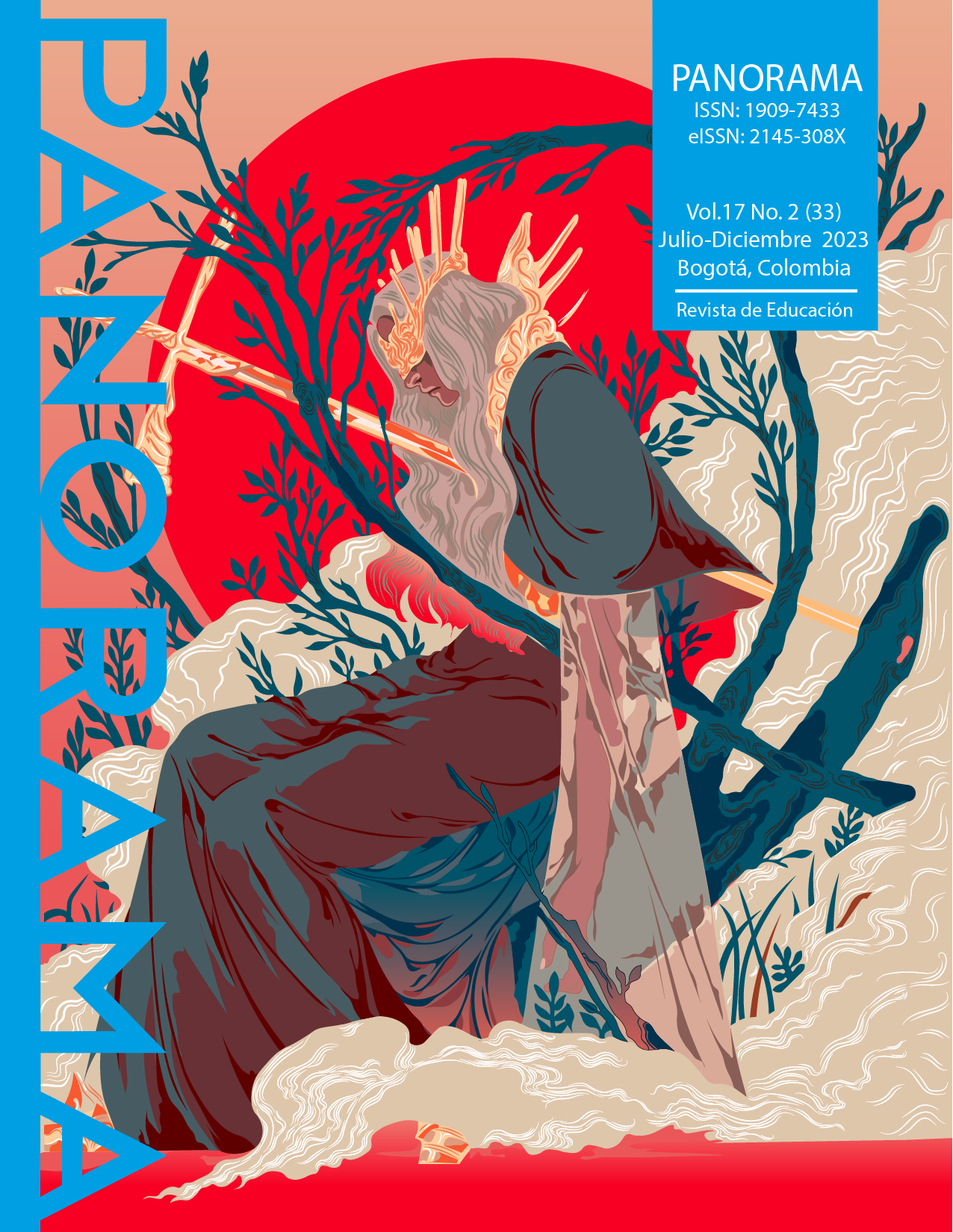Abstract
One of the greatest social and educational challenges facing society is to analyze how, from different scenarios, it is possible to build, consolidate and implement a quality teaching and learning process, which includes all the basic elements and allows to have a marked differential in the knowledge and actions of learners after the pandemic (post-covid-19). With the passage of time, technological tools have occupied an important place in society, even more so in the academic field, making it possible to reduce the knowledge gap in any discipline, promoting collaborative work. From this point of view, the question to be analyzed is: Will the use of virtual scenarios be a reality for a teaching-learning process? To achieve this objective, the systematic review method was used in the academic framework, and articles published between the years 2018 to 2022, with search words learning and virtual scenarios, supported by Boléan operators, using the specialized databases for that topic: Redalyc, Scielo, Scopus. The results show the need and relevance of adapting to the new virtual scenarios, being a challenge for the academic entities to characterize the population with greater skills for the technological, without leaving aside the importance of adapting the curricular plans for the actors of the process.
References
Abril, L. (2017). Motivación del aprendizaje en línea. Revista Panorama, 12(22), 43-56 DOI: http: //dx.doi.org./10.15765/pnrm.v12122.1137. Acevedo-Duque, Á., Argüello, A., Pineda, B., y Turcios, P. (2020). Competencias del docente en educación online en tiempo de COVID-19. Universidades Públicas de Honduras. Revista de ciencias sociales, 26(2), 1-18. Universidad de Zulia (Venezuela). Aguilar, F. (2020). Del aprendizaje en escenarios presenciales al aprendizaje virtual en tiempos de pandemia. Estudios pedagógicos, 46(3), 213-223. DOI 10.4067/S0718-07052020000300213. Briceño, M., Correa, S., Valdés, M., y Hadweh, M. (2020). Modelo de gestión educativa para programas en modalidad virtual de aprendizaje. Revista de ciencias sociales, 26(2), 285-296. Díaz-Ronceros, E., Marín-Rodríguez, W., Meleán-Romero, R., y Ausejo-Sánchez, J. (2021). Enseñanza virtual en tiempos de pandemia: Estudio en universidades públicas del Perú. Revista de Ciencias Sociales (Ve), 27(3), 428-440. Espinoza, J., Rodríguez, N., y Moreira-Mora, T. (2008). Relación entre diseño instruccional y rendimiento académico en un curso presencial y bimodal de Matemática: Un estudio cuasi experimental. Revista Educación, 42(2). Universidad de Costa Rica. https://www.redalyc.org/articulo.oa?id=44055139035 DOI: https://doi.org/10.15517/revedu.v42i2.28763
Gros, B, (2011). Evolución y retos de la educación virtual: construyendo el e-learning del siglo XXI. España: Editorial UOC.
Marzal, M., y Cruz-Palacios, E. (2018). Gaming como Instrumento Educativo para una Educación en Competencias Digitales desde los Academic Skills Centres. Revista General de Información y Documentación, 28(2), 489-506.
Niño, S., Castellanos-Ramírez, J., y Patrón, F. (2021). Contraste de experiencias de estudiantes universitarios en dos escenarios educativos: enseñanza en línea vs. enseñanza remota de emergencia. Revista Educación a Distancia (RED), 21(65). https://doi.org/10.6018/red.440731 Norman-Acevedo, E. (2019). Nuevos lenguajes para aprendizaje virtual, herramientas para los escenarios de aprendizaje. Panorama, 13(24).
Ramírez-García, A., González-Fernández, N., y Salcines-Talledo, I. (2018). Las competencias genéricas docentes en los grados de educación. Visión del profesorado universitario. Estudios pedagógicos (Valdivia), 44(2), 259-277. Solomon, M. (2008). Comportamiento del consumidor. Editorial Pearson Prentice Hall.
Varguillas, C., y Bravo P. (2020). Virtualidad como herramienta de apoyo a la presencialidad. Análisis desde la mirada estudiantil. Revista de ciencias sociales (Ve), 26(1), 219-231.

This work is licensed under a Creative Commons Attribution-NonCommercial-NoDerivatives 4.0 International License.
Copyright (c) 2023 Panorama





